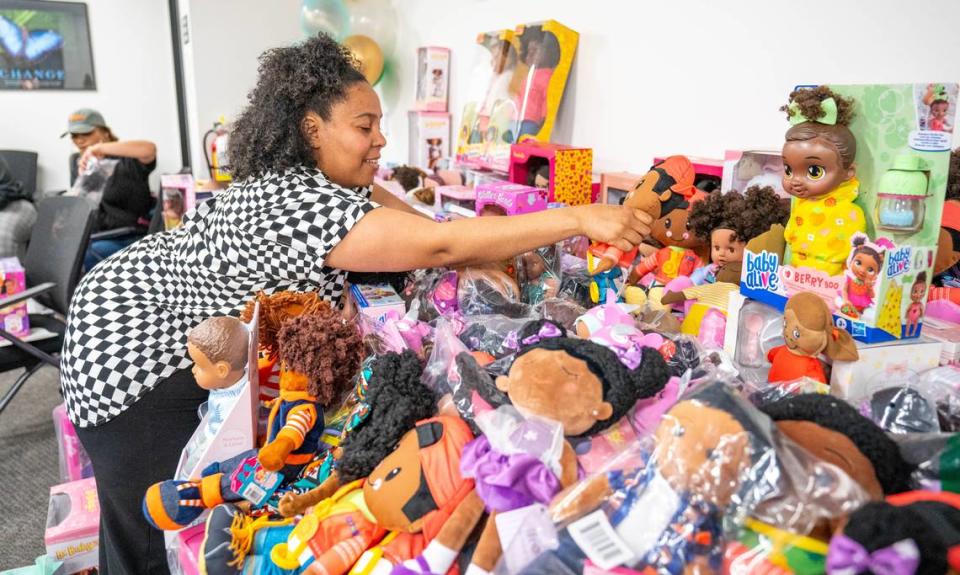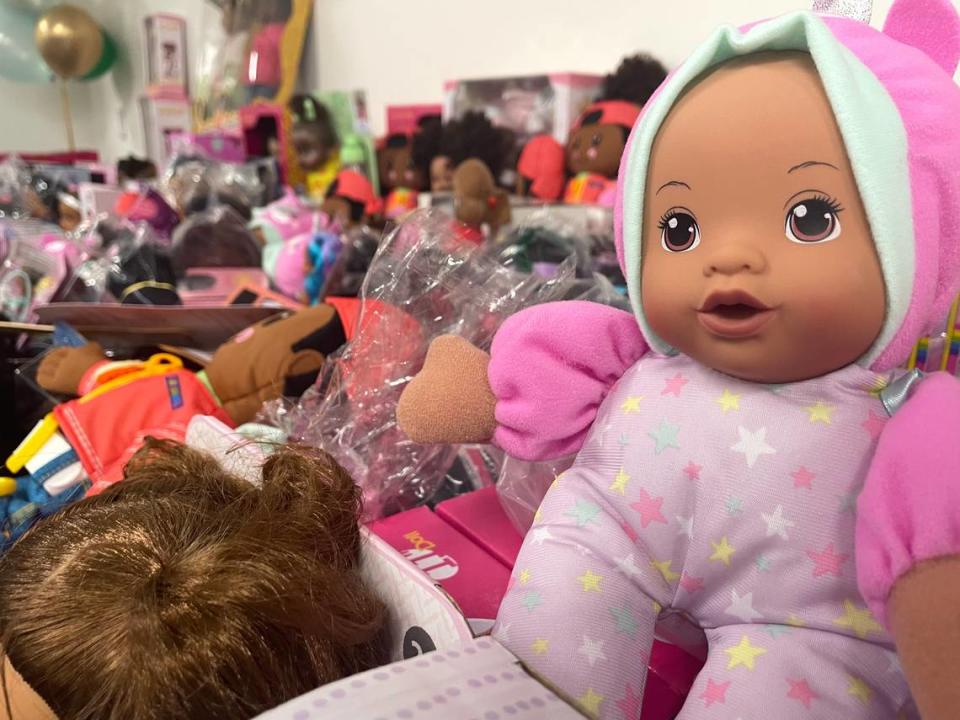Doll drive gives Black foster children ‘something to love’ while supporting laws to protect moms
The table overflowed with hundreds of dolls that would soon find homes in the arms of Sacramento foster children.
For three years, the National Council of Negro Women and Sacramento National Pan-Hellenic Council have collected Black dolls during the council’s annual Black Baby Doll Drive, which will find homes with Black foster children throughout the region.
“They need to have dolls that look like them — something that they can love,” said Carrie Malenab, president of the Eta Gamma Omega chapter of Alpha Kappa Alpha Sorority in Sacramento.
For Black children, having dolls that look like them reinforces a sense of belonging and self-acceptance, said Cora Hardy, executive director of Sacramento adoption and foster care agency Better Life Children Services.
The dolls offer an emotional support system to foster children separated from family or without parents of their own — they also symbolically offer support to laws to reduce Black mother and infant mortality.

“The U.S. has the highest mortality rate of both mothers and babies. The lowest ration of obstetricians and midwives. We do not guarantee any type of care nationwide for mothers or babies after birth. We’ve got to correct these disparities,” Malenab said.
It is a grim reality in California. Black mothers are three-to-four times more likely to die in childbirth than white mothers, according to the California Department of Public Health, regardless of income. Black infant mortality is also disproportionately higher than white infants.
“Though maternity mortality rates in California are lower than the rest of the nation, we are still failing Black women,” said Sandra Poole, a policy advocate at the Western Center on Law and Poverty in Sacramento.
A package of proposed federal legislation in Washington and state bills carried by lawmakers in the California Black Caucus aim to change that.
The suite of federal bills collectively known as the Black Maternal Health Momnibus Act would boost investment in nutrition and housing; extend the federal supplemental nutrition program for women, infants and children, known as WIC; eligibility in the mother’s postpartum and breastfeeding periods; fund community-based organizations working to improve maternal health outcomes and promote equity; and support mothers with maternal mental health conditions, among other objectives.
In California, Assembly Bill 2319 would strengthen the California Dignity in Pregnancy and Child Birth Act, which focuses on the implicit bias of health care providers and the toll it takes on Black maternal and infant health. The bill passed out of the assembly’s health committee April 3 and now heads to the assembly’s appropriations committee.
The original 2019 legislation required hospitals, birth centers and primary care clinics to conduct bias training for pre- and post-natal care providers.
A 2021 state Department of Justice investigation found only a fraction of hospitals complied with the act’s requirements. AB 2319 would give the act more teeth, establishing firm compliance deadlines and administrative penalties while giving enforcement powers to Department of Public Health and the state’s Attorney General.
Why the dolls?
The doll drive, and the hundreds of dolls that will soon make their way to children in foster care, carries another sobering message: Black children make up about 20% of California’s youth in foster care. That’s a full four times larger than the proportion of Black youth in the state overall, according to the state Legislative Analyst’s Office.
The percentage is even higher in Sacramento County. A full 32% of youth in the county’s foster care system are Black, officials at Better Life Children Services said, citing state and local data.
“It’s important to have a doll that represents us,” said Sheila Gibson of Alpha Kappa Alpha. “Something to love. Something to hold onto.”


